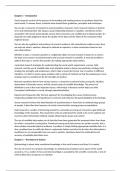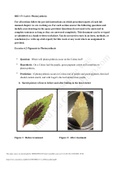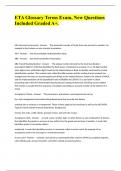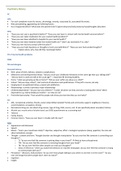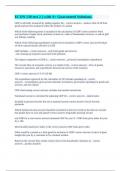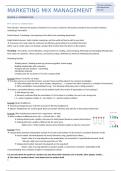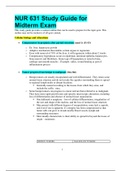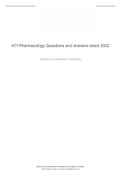Samenvatting
Summary - Introduction to Research Methodology
- Instelling
- Tilburg University (UVT)
- Boek
- Social Research
Summary of the book for the course Introduction to Research Methodology in the first year of Global Management of Social Issues. With this summary, I got an 7 on the exam.
[Meer zien]
